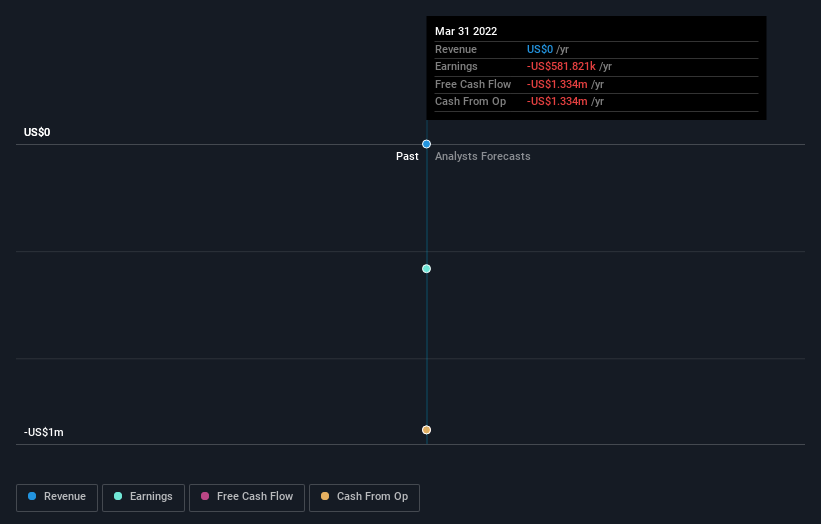What Type Of Shareholders Own The Most Number of LF Capital Acquisition Corp. II (NASDAQ:LFAC) Shares?
A look at the shareholders of LF Capital Acquisition Corp. II (NASDAQ:LFAC) can tell us which group is most powerful. Large companies usually have institutions as shareholders, and we usually see insiders owning shares in smaller companies. We also tend to see lower insider ownership in companies that were previously publicly owned.
LF Capital Acquisition II is not a large company by global standards. It has a market capitalization of US$323m, which means it wouldn't have the attention of many institutional investors. Taking a look at our data on the ownership groups (below), it seems that institutions own shares in the company. Let's delve deeper into each type of owner, to discover more about LF Capital Acquisition II.
See our latest analysis for LF Capital Acquisition II
What Does The Institutional Ownership Tell Us About LF Capital Acquisition II?
Institutions typically measure themselves against a benchmark when reporting to their own investors, so they often become more enthusiastic about a stock once it's included in a major index. We would expect most companies to have some institutions on the register, especially if they are growing.
LF Capital Acquisition II already has institutions on the share registry. Indeed, they own a respectable stake in the company. This suggests some credibility amongst professional investors. But we can't rely on that fact alone since institutions make bad investments sometimes, just like everyone does. When multiple institutions own a stock, there's always a risk that they are in a 'crowded trade'. When such a trade goes wrong, multiple parties may compete to sell stock fast. This risk is higher in a company without a history of growth. You can see LF Capital Acquisition II's historic earnings and revenue below, but keep in mind there's always more to the story.
Our data indicates that hedge funds own 9.3% of LF Capital Acquisition II. That's interesting, because hedge funds can be quite active and activist. Many look for medium term catalysts that will drive the share price higher. Level Field Management, LLC is currently the company's largest shareholder with 20% of shares outstanding. Beryl Capital Management LLC is the second largest shareholder owning 9.3% of common stock, and Highbridge Capital Management, LLC holds about 2.9% of the company stock.
Our studies suggest that the top 25 shareholders collectively control less than half of the company's shares, meaning that the company's shares are widely disseminated and there is no dominant shareholder.
While it makes sense to study institutional ownership data for a company, it also makes sense to study analyst sentiments to know which way the wind is blowing. We're not picking up on any analyst coverage of the stock at the moment, so the company is unlikely to be widely held.
Insider Ownership Of LF Capital Acquisition II
The definition of an insider can differ slightly between different countries, but members of the board of directors always count. Company management run the business, but the CEO will answer to the board, even if he or she is a member of it.
Insider ownership is positive when it signals leadership are thinking like the true owners of the company. However, high insider ownership can also give immense power to a small group within the company. This can be negative in some circumstances.
Our most recent data indicates that insiders own less than 1% of LF Capital Acquisition Corp. II. It seems the board members have no more than US$798k worth of shares in the US$323m company. We generally like to see a board more invested. However it might be worth checking if those insiders have been buying.
General Public Ownership
The general public, mostly comprising of individual investors, collectively holds 54% of LF Capital Acquisition II shares. This level of ownership gives investors from the wider public some power to sway key policy decisions such as board composition, executive compensation, and the dividend payout ratio.
Next Steps:
It's always worth thinking about the different groups who own shares in a company. But to understand LF Capital Acquisition II better, we need to consider many other factors. Case in point: We've spotted 4 warning signs for LF Capital Acquisition II you should be aware of, and 3 of them make us uncomfortable.
If you would prefer check out another company -- one with potentially superior financials -- then do not miss this free list of interesting companies, backed by strong financial data.
NB: Figures in this article are calculated using data from the last twelve months, which refer to the 12-month period ending on the last date of the month the financial statement is dated. This may not be consistent with full year annual report figures.
Have feedback on this article? Concerned about the content? Get in touch with us directly. Alternatively, email editorial-team (at) simplywallst.com.
This article by Simply Wall St is general in nature. We provide commentary based on historical data and analyst forecasts only using an unbiased methodology and our articles are not intended to be financial advice. It does not constitute a recommendation to buy or sell any stock, and does not take account of your objectives, or your financial situation. We aim to bring you long-term focused analysis driven by fundamental data. Note that our analysis may not factor in the latest price-sensitive company announcements or qualitative material. Simply Wall St has no position in any stocks mentioned.

 Yahoo Finance
Yahoo Finance 

